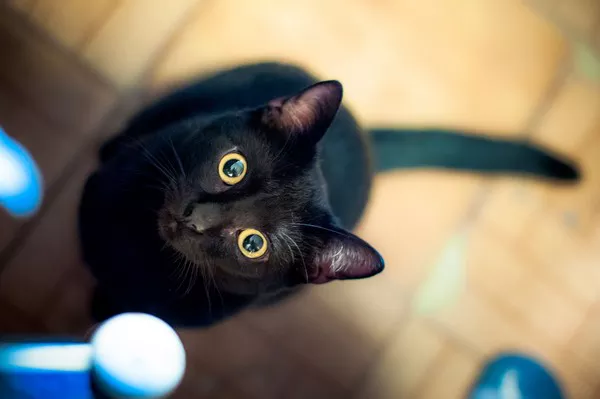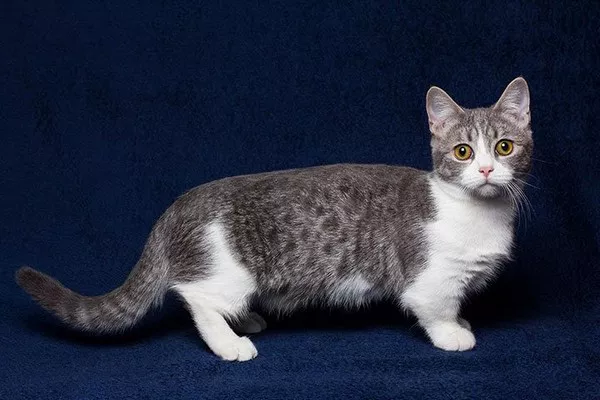Caring for a cat involves not only providing food and shelter but also ensuring their health and well-being. When a cat undergoes hospitalization, it can be a stressful and exhausting experience for both the pet and its owner. One common concern pet owners face post-hospitalization is their cat sleeping more than usual. Understanding the reasons behind this behavior is crucial for providing the best care during their recovery. This article explores why cats sleep a lot after hospitalization and offers guidance on how to support their recovery.
Understanding Feline Sleep Patterns
Cats are known for their love of sleep. On average, cats sleep between 12 to 16 hours a day, with some cats even reaching up to 20 hours of sleep. This behavior is rooted in their evolutionary history as predators who conserve energy for hunting. However, the amount and quality of sleep can vary based on age, health, and environmental factors.
The Impact of Hospitalization on Cats
Hospitalization can be a stressful experience for cats. The unfamiliar environment, strange smells, and the presence of other animals can cause anxiety and discomfort. Additionally, medical procedures, treatments, and medications can further impact their physical and emotional state. As a result, it is not uncommon for cats to exhibit changes in behavior, including increased sleep, following hospitalization.
Reasons for Increased Sleep Post-Hospitalization
Several factors can contribute to a cat’s increased sleep after being discharged from the hospital. Understanding these reasons can help pet owners provide the necessary care and support during their cat’s recovery.
Physical Exhaustion
Medical procedures, surgeries, and treatments can be physically exhausting for cats. The body’s natural response to physical exertion is to rest and recuperate. Post-hospitalization, a cat may sleep more to recover from the physical toll of medical interventions. This increased sleep allows the body to heal and regain strength.
Emotional Stress and Anxiety
Hospitalization can be a traumatic experience for cats. The unfamiliar surroundings, handling by strangers, and separation from their home environment can cause significant stress and anxiety. Upon returning home, cats may sleep more as a coping mechanism to recover from the emotional stress they experienced. Sleep helps them feel safe and secure, reducing anxiety levels.
Medication Side Effects
Medications prescribed during or after hospitalization can have sedative effects, leading to increased sleep. Pain relief medications, sedatives, and antibiotics can all cause drowsiness and lethargy in cats. It is important to follow the veterinarian’s instructions regarding medication administration and to monitor for any adverse effects.
Pain and Discomfort
Pain and discomfort from surgical procedures or medical treatments can also lead to increased sleep. Cats may sleep more to avoid movement and reduce pain. Pain management is a critical aspect of post-hospitalization care, and addressing pain can help improve their overall comfort and reduce excessive sleep.
Immune System Response
The immune system plays a vital role in the healing process. When a cat is recovering from an illness or surgery, the immune system is actively working to repair tissues and fight off infections. This increased immune activity can lead to fatigue, prompting the cat to sleep more as part of the body’s natural healing response.
Age and Health Status
Age and overall health status significantly influence a cat’s sleep patterns. Older cats or those with chronic health conditions may require more sleep to maintain their energy levels and support their immune system. Post-hospitalization, these cats may exhibit increased sleep as part of their normal behavior and recovery process.
Environmental Factors
The home environment plays a crucial role in a cat’s recovery. A quiet, comfortable, and stress-free environment can promote better sleep and faster healing. Conversely, a noisy or chaotic environment can disrupt sleep patterns and hinder recovery. Ensuring a calm and peaceful space for the cat to rest is essential for their well-being.
See Also: How Much Is a Black Sphynx Cat?
Supporting Your Cat’s Recovery
Providing the right care and support post-hospitalization can significantly impact your cat’s recovery. Here are some practical tips to help your cat feel comfortable and promote healing.
Create a Comfortable Resting Area
Ensure your cat has a quiet, comfortable, and warm place to rest. A soft bed in a secluded area away from household noise and activity can help them feel secure and promote restful sleep.
Monitor Their Behavior
Keep a close eye on your cat’s behavior and sleeping patterns. While increased sleep is common post-hospitalization, excessive lethargy, or other concerning symptoms should be addressed with your veterinarian.
Follow Medication Guidelines
Administer any prescribed medications according to your veterinarian’s instructions. Monitor for any side effects and report them to your vet. Never alter or discontinue medication without consulting your veterinarian.
Provide Proper Nutrition
Ensure your cat is receiving proper nutrition to support their recovery. Follow your veterinarian’s dietary recommendations and encourage your cat to eat by offering their favorite foods if their appetite is low.
Maintain a Routine
Cats thrive on routine. Try to maintain a consistent schedule for feeding, medication, and playtime. A predictable routine can help reduce stress and promote a sense of normalcy.
Limit Physical Activity
While rest is important, light physical activity can help prevent stiffness and promote circulation. Encourage gentle play and movement, but avoid strenuous activities that could impede healing.
Ensure Hydration
Keep fresh water available at all times and encourage your cat to drink. Proper hydration is crucial for recovery and overall health.
Provide Emotional Support
Spend quality time with your cat, offering gentle petting and reassurance. Your presence and affection can provide comfort and reduce anxiety during their recovery.
When to Seek Veterinary Advice
While increased sleep post-hospitalization is often normal, it is important to be aware of signs that may indicate complications or the need for further veterinary care.
Signs of Concern
Prolonged Lethargy: If your cat remains lethargic and unresponsive for an extended period, it may indicate an underlying issue.
Loss of Appetite: A significant decrease in appetite or refusal to eat can be a sign of illness or discomfort.
Vomiting or Diarrhea: Persistent gastrointestinal issues should be addressed with your veterinarian.
Labored Breathing: Difficulty breathing or rapid breathing may indicate respiratory issues.
Pain or Discomfort: If your cat shows signs of pain, such as vocalizing, hiding, or avoiding movement, seek veterinary advice.
Follow-Up Appointments
Attend all scheduled follow-up appointments with your veterinarian. These visits are essential for monitoring your cat’s recovery, adjusting medications, and addressing any concerns.
Conclusion
Increased sleep is a common behavior in cats following hospitalization. It can result from physical exhaustion, emotional stress, medication side effects, pain, immune system response, and environmental factors. Understanding these reasons can help pet owners provide the necessary care and support to facilitate their cat’s recovery. By creating a comfortable resting area, monitoring behavior, following medication guidelines, providing proper nutrition, maintaining a routine, limiting physical activity, ensuring hydration, and offering emotional support, pet owners can promote healing and improve their cat’s overall well-being. If any concerning signs arise, seeking veterinary advice promptly is essential for addressing potential complications and ensuring a smooth recovery process.

![Why Is My Cat Sleeping a Lot After Hospitalization? [Revealed!]](https://www.catsmeowweb.com/wp-content/uploads/2024/07/cat-hospital07-700x375.webp)






















